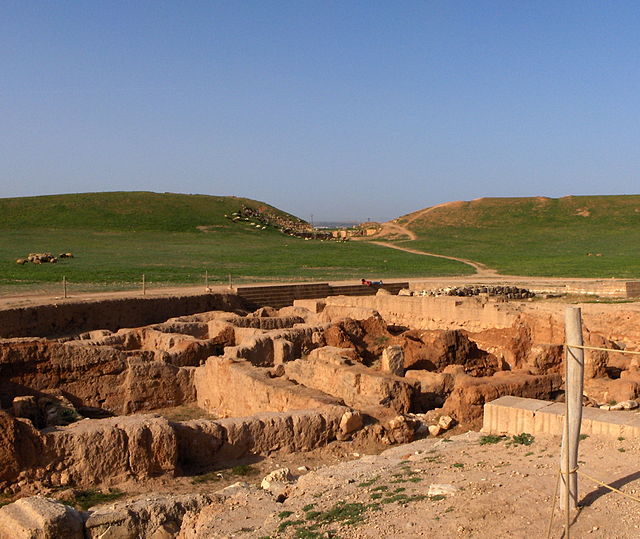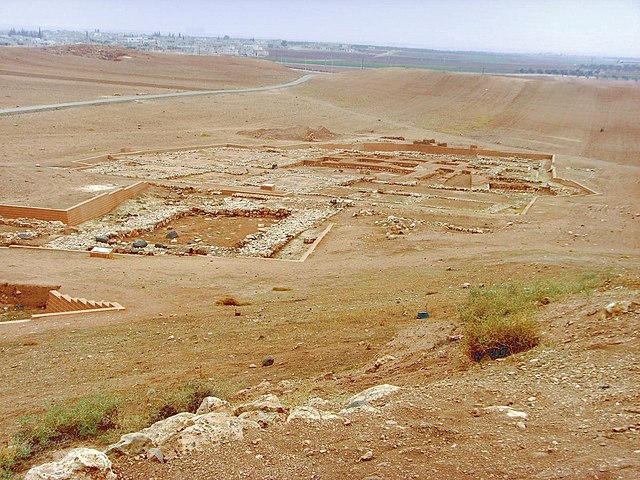Eblaite, or Palaeosyrian, is an extinct East Semitic language used during the 3rd millennium BC in Northern Syria. It was named after the ancient city of Ebla, in modern western Syria. Variants of the language were also spoken in Mari and Nagar. According to Cyrus H. Gordon, although scribes might have spoken it sometimes, Eblaite was probably not spoken much, being rather a written lingua franca with East and West Semitic features.
Eblaite inscriptions found in Ebla
Ebla was one of the earliest kingdoms in Syria. Its remains constitute a tell located about 55 km (34 mi) southwest of Aleppo near the village of Mardikh. Ebla was an important center throughout the 3rd millennium BC and in the first half of the 2nd millennium BC. Its discovery proved the Levant was a center of ancient, centralized civilization equal to Egypt and Mesopotamia and ruled out the view that the latter two were the only important centers in the Near East during the Early Bronze Age. The first Eblaite kingdom has been described as the first recorded world power.
Ruins of the outer wall and the "Damascus Gate"
Royal palace "G"
Akkadian soldier of Naram-Sin, with helmet and long sword, on the Nasiriyah stele. He carries a metal vessel of Anatolian type. From Mesopotamia, Iraq, c. 2300 BC. Iraq Museum.
Palace "P5"





